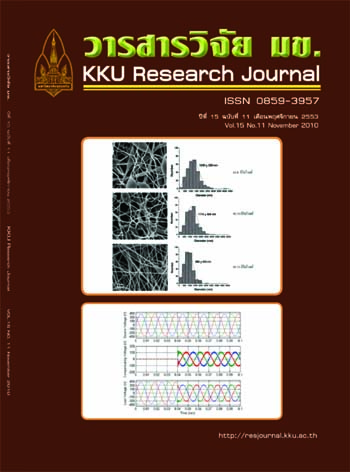A study of mutagenicity and anti-mutagenicity of non-polar extracts in cooked local vegetable food recipes by Ames test (Thai)
Main Article Content
Abstract
This study of mutagenesis and anti-mutagenesis of six local vegetable food recipes of the Nutrition Division, Department of Hygiene, Ministry of Public Health, included Keang khee lhek kub nuer voa (Cassia [Cassia siamea Lam.] leaf with beef soup), Keang nhor mai sai bai ya nang (Bamboo shoot [Phyllostachys sp./Dendrocalamus sp]) with Bamboo grass [Tiliacora triandra Diels.] soup), Keang hua plee sai sei crong mhu cha-oom lare Chaplu (Banana blossom [:Musa paradisiaca L.] with pork rib and Acacia Insuavis, Lace and Wildbetal [Piper sarmentosum Roxb] leaf soup), Phat phak khome sai mhu leare kung (Amaranth [Amaranthus viridis L. Amaranthaceae] sauté with pork and prawns), Yam bai bua boke (Tiger herbal [Centella asiatica Urban] leaf salad) and Kua pham (Fresh water algae or Swamp Algae [Wolffia globosa Hartog & Plas.]) with pork). All six food recipes were extracted with n-hexane and the non-polar fractions were further tested for mutagenicity anti-mutagenicity the Ames test. Salmonella typhimurium strain TA 98 and TA 100 and mutagen from nitrosation reaction of 1-aminopyrene (1-AP) were used. The results demonstrated that non-polar extracts of all six food recipes had no mutagenesis to S. typhimurium strains TA 98 and TA100. However, in the absence of enzymatic activation, these extracts had anti-mutagenesis to the S. typhimurium strain TA 98 and TA100 mutated with 1-AP. The non-polar fractions from Phat phak khome sai mhu leare kung had the highest anti-mutagenesis followed by Keang nhor mai sai bai ya nang. This study provides preliminary data on the potential of Thai food recipes, which might be beneficial in anti-mutation or anti-cancer diets.


